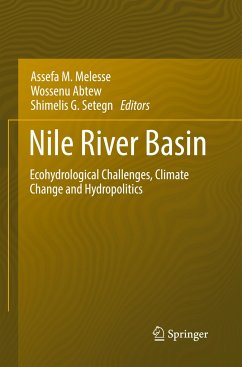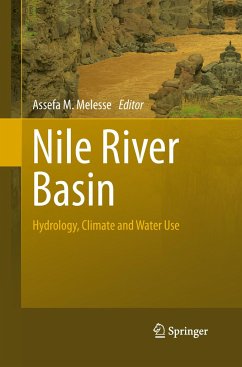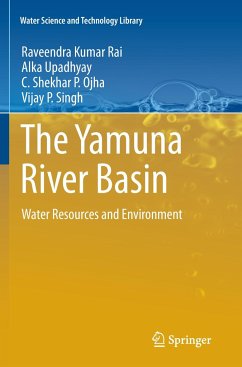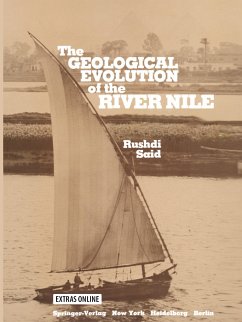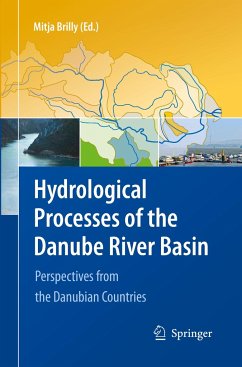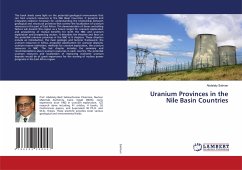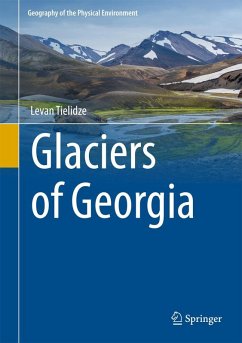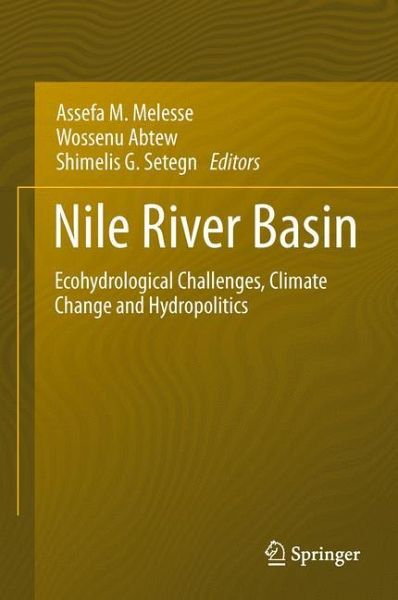
Nile River Basin
Ecohydrological Challenges, Climate Change and Hydropolitics
Herausgegeben: Melesse, Assefa; Abtew, Wossenu; Setegn, Shimelis Gebriye

PAYBACK Punkte
76 °P sammeln!
The book provides a comprehensive overview of the hydrology of the Nile River, especially the ecohydrological degradation and challenges the basin is facing, the impact of climate change on water availability and the transboundary water management issues. The book includes analysis and approaches that will help provide different insights into the hydrology of this complex basin, which covers 11 countries and is home to over 300 million people. The need for water-sharing agreements that reflect the current situations of riparian countries and are based on equitable water- sharing principles is ...
The book provides a comprehensive overview of the hydrology of the Nile River, especially the ecohydrological degradation and challenges the basin is facing, the impact of climate change on water availability and the transboundary water management issues. The book includes analysis and approaches that will help provide different insights into the hydrology of this complex basin, which covers 11 countries and is home to over 300 million people. The need for water-sharing agreements that reflect the current situations of riparian countries and are based on equitable water- sharing principles is stressed in many chapters. This book explores water resource availability and quality and their trends in the basin, soil erosion and watershed degradation at different scales, water and health, land use and climate change impact, transboundary issues and water management, dams, reservoirs and lakes. The link between watershed and river water quantity and quality is discussed pointing out the importance of watershed protection for better water resource management, water accessibility, institutional set-up and policy, water demand and management. The book also presents the water sharing sticking points in relation to historical treaties and the emerging water demands of the upstream riparian countries. The need for collaboration and identification of common ground to resolve the transboundary water management issues and secure a win-win is also indicated.





